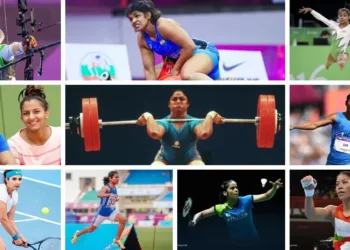Union Transport Minister Nitin Gadkari has thrown down the gauntlet to critics of E20 ethanol-blended petrol, boldly challenging them to show even one car damaged by the environmentally-friendly fuel. Speaking at a recent summit, Gadkari declared: “The petroleum lobby is manipulating it. It is true that E20 reduces the average mileage of vehicles, but don’t we want to reduce the ₹22 lakh crore fuel import bill and cut down on pollution?”
For millions of Indian vehicle owners caught between conflicting narratives about E20 fuel, Gadkari’s frank admission and challenge cuts through the noise. This isn’t just about fuel efficiency – it’s about India’s energy independence and environmental future.
Table of Contents
Gadkari E20 Fuel: Facts vs. Fiction
| E20 Fuel Aspects | Reality Check |
|---|---|
| Mileage Impact | 2-4% reduction in fuel efficiency |
| Vehicle Damage Claims | No evidence of damage reported |
| Import Bill Savings | ₹22 lakh crore annually |
| Pollution Reduction | Lower CO, HC, and CO2 emissions |
| Current Implementation | Available since April 2023 |
| Future Plans | E27 (27% blending) by August 2025 |
| Minor Replacements | Rubber parts after 20,000-30,000 km in older vehicles |
Gadkari’s Bold Challenge: Put Up or Shut Up
No Evidence of Vehicle Damage
Gadkari has challenged critics to present evidence of vehicle damage from E20 petrol, dismissing criticism as misinformation spread by vested interests. His confidence stems from real-world data showing no reported vehicle failures since E20’s rollout.

Honest About Trade-offs
Unlike many politicians, Gadkari admits the mileage reduction upfront while emphasizing the bigger picture. He acknowledges that E20 reduces vehicle mileage but questions whether this minor inconvenience is worth sacrificing India’s ₹22 lakh crore fuel import reduction and environmental benefits.
The Petroleum Lobby’s Fear Campaign
Vested Interests at Play
Gadkari directly blamed the petroleum lobby for manipulating public opinion against E20 fuel. This lobby has obvious financial reasons to resist ethanol blending, which reduces their market share and import-dependent business model.
Misinformation vs. Facts
While critics spread alarm about engine damage, the petroleum ministry clarifies that E20 petrol might require minor replacements like rubber parts or gaskets after 20,000 to 30,000 km in some older vehicles – inexpensive replacements that typically occur during regular servicing.
Real Benefits: Beyond the Mileage Myth
Economic Independence
India’s ethanol-blending programme is a key step towards sustainability, enhancing energy security and reducing carbon emissions. The program directly supports farmers while reducing dependence on volatile international oil markets.

Environmental Impact
Ethanol blending reduces emissions of regulated pollutants such as CO, HC and CO2. For a country battling severe air pollution, these environmental benefits far outweigh minor mileage concerns.
Farmer Empowerment
Ethanol production from crops like sugarcane and corn provides additional income streams for farmers, supporting rural economies and agricultural sustainability.
For comprehensive updates on India’s energy policies, visit Technosports Energy.
What Vehicle Owners Need to Know
Minimal Impact on Modern Cars
While E20 poses challenges for vehicle owners, particularly those with older models, staying informed and considering potential vehicle upgrades addresses most concerns. Most vehicles manufactured after 2010 handle E20 without issues.
Simple Maintenance Solutions
For older cars running E20 petrol, regular replacement of certain rubber parts and timely engine tuning tackles the 2-4% fuel efficiency reduction. These are routine maintenance items, not major repairs.
Looking Ahead: E27 on the Horizon
Accelerated Timeline
The government plans to introduce 27% ethanol blending (E27) guidelines by August 2025, showing commitment to reducing fossil fuel dependence even further.
Proven Success
India achieved an average blending rate of 10% ethanol in petrol by June 2022, demonstrating the program’s successful implementation and scalability.
For official information on ethanol blending policies, visit NITI Aayog’s Ethanol Roadmap and Ministry of Petroleum.
Stay updated with policy developments at Technosports Policy.
The Bigger Picture: India’s Energy Revolution
Gadkari’s confrontational approach reflects the government’s determination to push through necessary but sometimes unpopular reforms. This transition aims at improving India’s energy security, reducing greenhouse gas emissions, and boosting rural agricultural economies.
For detailed analysis on energy security, check Observer Research Foundation and Drishti IAS Energy Updates.
Frequently Asked Questions (FAQs)
1. Does E20 fuel really damage car engines as critics claim?
Nitin Gadkari has challenged critics to present evidence of vehicle damage from E20 petrol, with no documented cases of engine damage reported since its implementation. The petroleum ministry clarifies that E20 might require minor replacements like rubber parts or gaskets after 20,000-30,000 km in older vehicles, but these are inexpensive routine maintenance items. Modern vehicles face no compatibility issues, while older cars may need minor adjustments during regular servicing.
2. Why does the government push E20 fuel despite reduced mileage?
While E20 does reduce vehicle mileage by 2-4%, Gadkari argues this minor trade-off is worth the massive benefits: reducing India’s ₹22 lakh crore annual fuel import bill and cutting pollution from fossil fuels. The transition aims at improving India’s energy security, reducing greenhouse gas emissions, and boosting rural agricultural economies by supporting farmers through ethanol production. The government views this as essential for long-term national interests over short-term convenience.








